Filter by

Higher education ICT integration in Africa: readiness, implementation and tra…
- Edition
- -
- ISBN/ISSN
- 9781003394877
- Collation
- -
- Series Title
- -
- Call Number
- -
- Edition
- -
- ISBN/ISSN
- 9781003394877
- Collation
- -
- Series Title
- -
- Call Number
- -
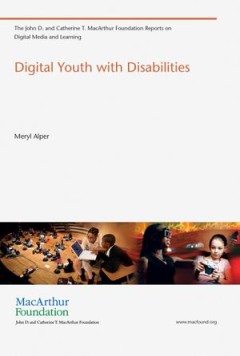
Digital Youth with Disabilities
An examination of media and technology use by school-aged youth with disabilities, with an emphasis on media use at home. Most research on media use by young people with disabilities focuses on the therapeutic and rehabilitative uses of technology; less attention has been paid to their day-to-day encounters with media and technology—the mundane, sometimes pleasurable and sometimes frustrating…
- Edition
- -
- ISBN/ISSN
- 9780262527156
- Collation
- -
- Series Title
- -
- Call Number
- 362 ALP d
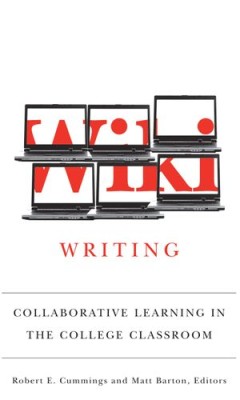
Wiki Writing : Collaborative Learning in the College Classroom
When most people think of wikis, the first---and usually the only---thing that comes to mind is Wikipedia. The editors of Wiki Writing: Collaborative Learning in the College Classroom, Robert E. Cummings and Matt Barton, have assembled a collection of essays that challenges this common misconception, providing an engaging and helpful array of perspectives on the many pressing theoretical and pr…
- Edition
- -
- ISBN/ISSN
- 9780472900534
- Collation
- 280 halaman
- Series Title
- -
- Call Number
- 370 CUM w
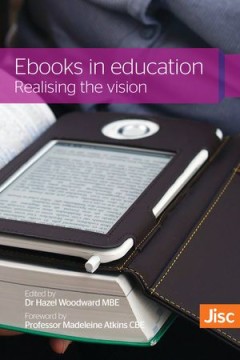
Ebooks in education : Realising the vision
Ebooks are coming of age in education, as this exciting collection commissioned by Jisc demonstrates. Case studies, reflecting ebook success stories across the higher and further education sectors, include: An innovative app to encourage ebook take-up in a Welsh college; A partnership between a library and research centre to create open access monographs and midigraphs; Several examples of crea…
- Edition
- -
- ISBN/ISSN
- 9781909188389
- Collation
- 144 halaman
- Series Title
- -
- Call Number
- 020 WOO e
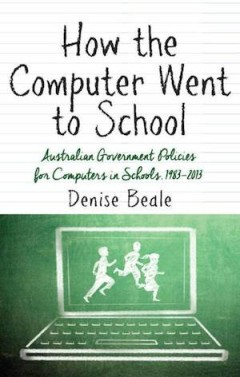
How the Computer went to School : Australian Government Policies for Computer…
For more than 30 years, certain governments, individuals and organisations have actively promoted computers as learning technologies. Enormous amounts of money and time have been spent promoting specific kinds of educational computing, and policies by which these might be implemented. The view that computers can enhance student learning has gained broad acceptance. The computers should not auto…
- Edition
- -
- ISBN/ISSN
- 9781922235169
- Collation
- -
- Series Title
- -
- Call Number
- 370 BEA h
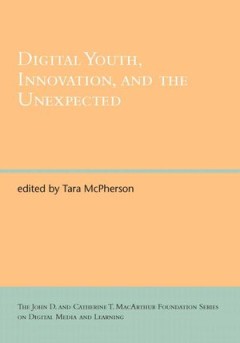
Digital Youth, Innovation, and the Unexpected
How emergent practices and developments in young people's digital media can result in technological innovation or lead to unintended learning experiences and unanticipated social encounters. Young people's use of digital media may result in various innovations and unexpected outcomes, from the use of videogame technologies to create films to the effect of home digital media on family life. This…
- Edition
- -
- ISBN/ISSN
- 9780262134958
- Collation
- 269 halaman
- Series Title
- -
- Call Number
- 305 MCP d
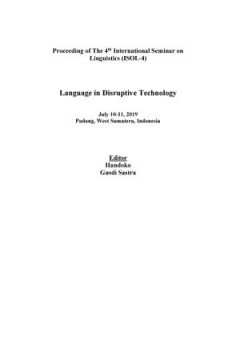
Thumbnail for Proceeding of The 4th International Seminar on Linguistics (ISO…
The rapid development of technology has led to a borderless community which may affect social life, including language. Through the disruptive technology of the era, the issue of language use and how technology affects language has arisen as a critical aspect of human communication. The current ISOL-4 tries to bring the issues of Language and Disruptive Technology to academic discussion.
- Edition
- -
- ISBN/ISSN
- 9783110680027
- Collation
- -
- Series Title
- -
- Call Number
- -
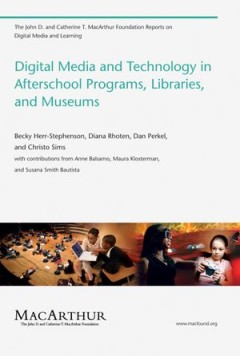
Digital Media and Technology in Afterschool Programs, Libraries, and Museums
An investigation of how three kinds of youth organizations have integrated digital practices into their programs. Digital media and technology have become culturally and economically powerful parts of contemporary middle-class American childhoods. Immersed in various forms of digital media as well as mobile and Web-based technologies, young people today appear to develop knowledge and skills th…
- Edition
- -
- ISBN/ISSN
- 9780262515764
- Collation
- -
- Series Title
- -
- Call Number
- -
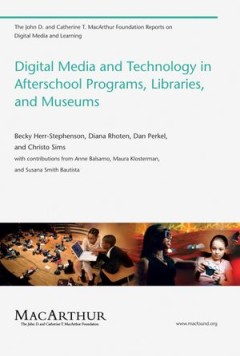
Digital Media and Technology in Afterschool Programs, Libraries, and Museums
An investigation of how three kinds of youth organizations have integrated digital practices into their programs. Digital media and technology have become culturally and economically powerful parts of contemporary middle-class American childhoods. Immersed in various forms of digital media as well as mobile and Web-based technologies, young people today appear to develop knowledge and skills th…
- Edition
- -
- ISBN/ISSN
- 9780262515764
- Collation
- -
- Series Title
- -
- Call Number
- 708 DIG d
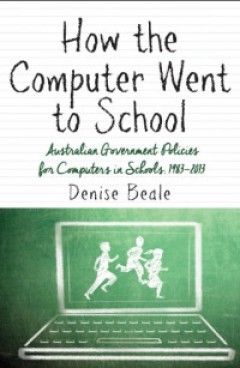
How the Computer went to School
For more than 30 years, certain governments, individuals and organisations have actively promoted computers as learning technologies. Enormous amounts of money and time have been spent promoting specific kinds of educational computing, and policies by which these might be implemented. The view that computers can enhance student learning has gained broad acceptance. The computers should not auto…
- Edition
- -
- ISBN/ISSN
- 9781922235169
- Collation
- -
- Series Title
- -
- Call Number
- -
 Computer Science, Information & General Works
Computer Science, Information & General Works  Philosophy & Psychology
Philosophy & Psychology  Religion
Religion  Social Sciences
Social Sciences  Language
Language  Pure Science
Pure Science  Applied Sciences
Applied Sciences  Art & Recreation
Art & Recreation  Literature
Literature  History & Geography
History & Geography